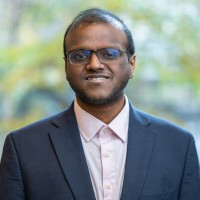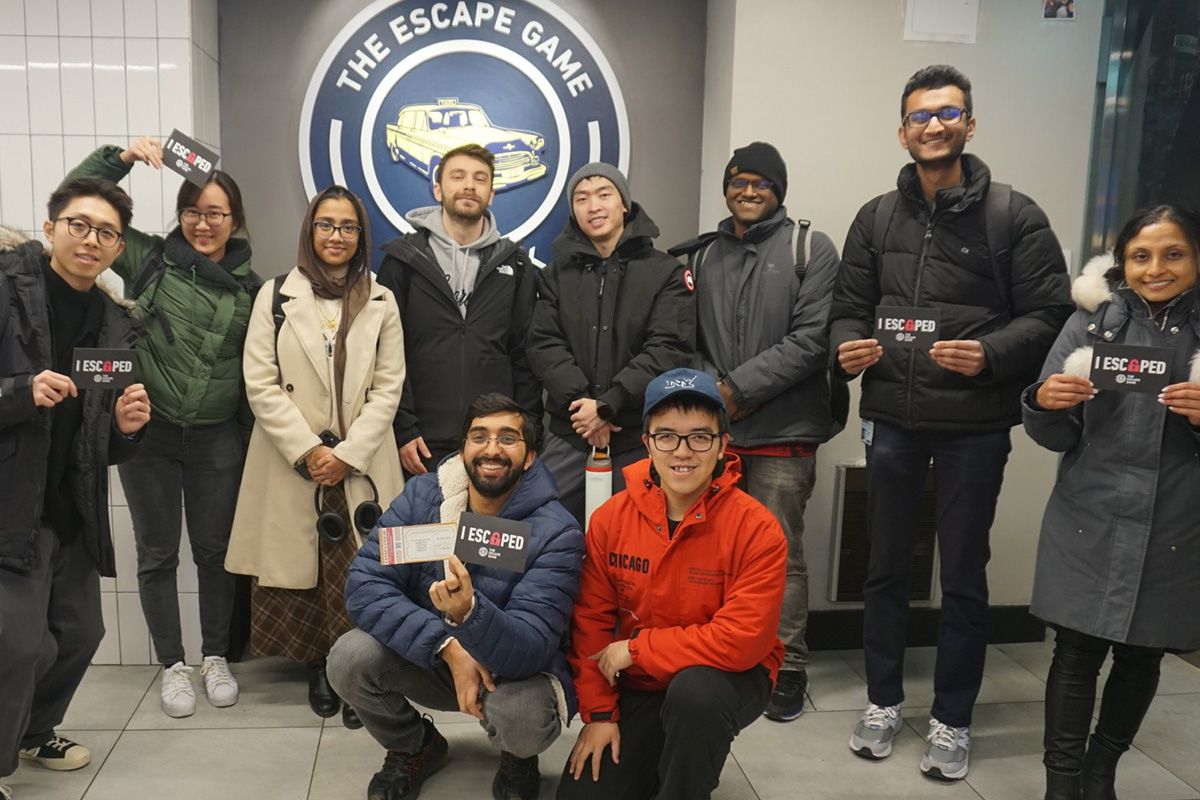The Kushal Dey Lab
Research

Assistant Professor
The Kushal Dey Lab builds statistical and machine learning models that integrate genetic and genomic data to prioritize variants, genes, and cell types, and to decode the causal functional architecture underlying heritable complex diseases — including immune-related diseases, like Alzheimer’s and inflammatory bowel disease, and heritable cancers, like breast cancer.
Nominating candidate risk genes and gene sets underlying disease-critical processes is of utmost importance for developing drug targets and informing CRISPR screening. The Kushal Dey Lab focuses on developing machine learning models and computational pipelines that integrate genomic and epigenomic data from RNA-seq, ChiP-seq, Perturb-seq and spatial transcriptomic experiments with genetic association studies (GWAS, WES) to enhance our understanding of the functional architecture of all heritable complex diseases, including immune-related diseases like Alzheimers’, IBD, Lupus and several heritable cancers like Breast and Prostate cancers.
Some of the research directions of interest include developing:
- Models to prioritize variants, genes and cell states for disease using a combination of genetic, genomic and perturbation data.
- Models to identify the causal directed graphs underlying gene and gene interaction models for disease.
- Benchmarking pipelines informed by disease genetics to validate and compare different genomic prediction models.

Publications Highlights
Dorans, E., Jagadeesh, K., Dey, K.# and Price, A.L.#, 2025. Linking regulatory variants to target genes by integrating single-cell multiome methods and genomic distance. Nature Genetics, pp.1-10. https://www.nature.com/articles/s41588-025-02220-3
Mitra, S., Malik, R., Wong, W., Rahman, A., Hartemink, A.J., Pritykin, Y., Dey, K.K.# and Leslie, C.S.#, 2024. Single-cell multi-ome regression models identify functional and disease-associated enhancers and enable chromatin potential analysis. Nature Genetics, 56(4), pp.627-636. https://www.nature.com/articles/s41588-024-01689-8
Fabiha, T., Evergreen, I., Kundu, S., Pampari, A., Abramov, S., Boytsov, A., … , Price, A.L. # and Dey, K.K. # (2024). A consensus variant-to-function score to functionally prioritize variants for disease. bioRxiv, 2024-11. In review Nature Genetics. https://www.biorxiv.org/content/10.1101/2024.11.07.622307v2
Cao, X., Sun, H., Feng, R., Mazumder, R., Buen Abad Najar, C.F., Li, Y.I., de Jager, P.L., Bennett, D., Alzheimer’s Disease Functional Genomics Consortium, Dey, K.K.# and Wang, G.#, 2025. Integrative multi-omics QTL colocalization maps regulatory architecture in aging human brain. medRxiv, pp.2025-04. In review Nature Genetics. https://www.medrxiv.org/content/10.1101/2025.04.17.25326042v2
Jagadeesh, K.A.*, Dey, K.K.*, Montoro, D.T., Mohan, R., Gazal, S, Engreitz, J.M., Xavier, R.J., Price, A.L., and Regev, A., 2022. Identifying disease-critical cell types and cellular processes across the human body by integration of single-cell profiles and human genetics. Nature Genetics, 54, pp. 1479-1492. https://www.nature.com/articles/s41588-022-01187-9
People

Kushal Dey, PhD
Assistant Professor
- The Kushal Dey lab focuses on developing machine learning models and computational pipelines that integrate genomic and epigenomic data.
- PhD, University of Chicago
- [email protected]
- Email Address
Members


























Achievements
- NIH/NHGRI Early Stage Investigator R01(2025-2030)
- Josie Robertson Investigator (2023–2028)
- K99/R00 Pathway to Independence Award (NIH/NHGRI) (2022–2026)
- NCI P30 CCSG supplement – “LLMs in cancer research” (2023-2024)
- AWS IMAGINE Grant Children's Health Innovation Award 2024-2025 (MSKCC: Project Co-lead)
- PSRP Developmental Funds Awards (2025: Co-lead)
- NCI P30 CCSG Developmental Award (2023-2024)
- Consortia member: ENCODE, ADSP
- Catalog Working Group Co-chair + Disease Focus Group Lead: IGVF consortium (2023-)
- University of Chicago Arts, Science + Culture Graduate Collaboration Grant (2017–2018)
- David Wallace Award for Applied Statistics, University of Chicago (2016)
Open Positions
To learn more about available postdoctoral opportunities, please visit our Career Center
To learn more about compensation and benefits for postdoctoral researchers at MSK, please visit Resources for Postdocs
Post-doctoral Fellow position in machine learning and AI in computational biology
The Kushal Dey lab in the Computational and Systems Biology program at the Sloan Kettering Institute, Memorial Sloan Kettering Cancer Center, has 1 postdoctoral fellow position available in applications of machine learning and generative AI models in genetics and computational biology.
Post-doctoral Fellow position in Statistical Genetics
The Kushal Dey lab in the Computational and Systems Biology program at the Sloan Kettering Institute, Memorial Sloan Kettering Cancer Center, has 1 postdoctoral fellow position available in statistical genetics and machine learning models.
Get in Touch
-
Lab Head Email
Disclosures
Members of the MSK Community often work with pharmaceutical, device, biotechnology, and life sciences companies, and other organizations outside of MSK, to find safe and effective cancer treatments, to improve patient care, and to educate the health care community. These activities outside of MSK further our mission, provide productive collaborations, and promote the practical application of scientific discoveries.
MSK requires doctors, faculty members, and leaders to report (“disclose”) the relationships and financial interests they have with external entities. As a commitment to transparency with our community, we make that information available to the public. Not all disclosed interests and relationships present conflicts of interest. MSK reviews all disclosed interests and relationships to assess whether a conflict of interest exists and whether formal COI management is needed.
Kushal Dey discloses the following relationships and financial interests:
No disclosures meeting criteria for time period
The information published here is a complement to other publicly reported data and is for a specific annual disclosure period. There may be differences between information on this and other public sites as a result of different reporting periods and/or the various ways relationships and financial interests are categorized by organizations that publish such data.
This page and data include information for a specific MSK annual disclosure period (January 1, 2024 through disclosure submission in spring 2025). This data reflects interests that may or may not still exist. This data is updated annually.
Learn more about MSK’s COI policies here. For questions regarding MSK’s COI-related policies and procedures, email MSK’s Compliance Office at [email protected].
